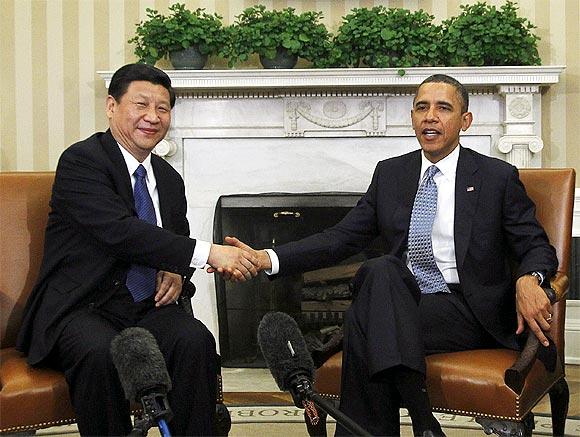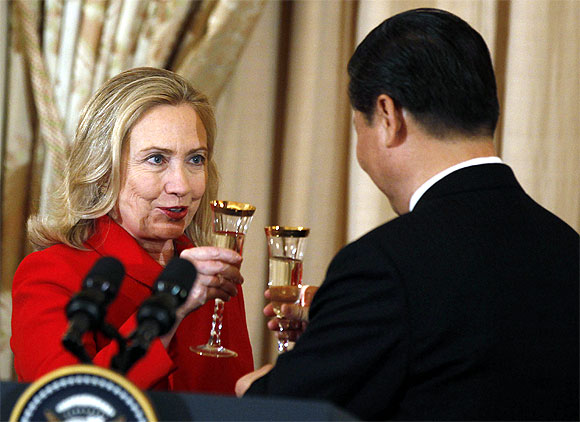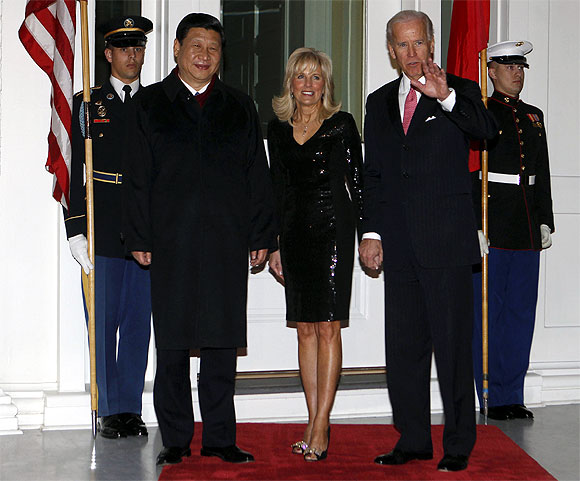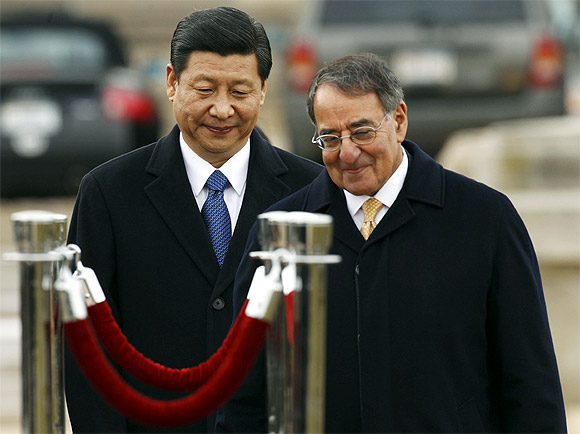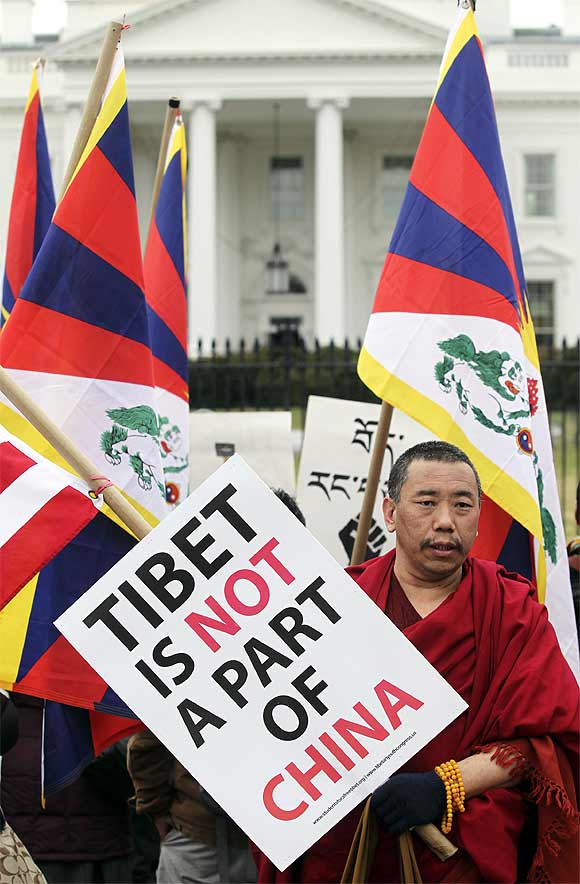 | « Back to article | Print this article |
China's Xi Jinping sees America's friendly, but firm side
United States President Barack Obama took up with visiting Chinese Vice President Xi Jinping his concerns over the human rights situation in China, which has experienced a recent surge in unrest among the Tibetan community.
Even as a red carpet welcome was accorded to the Chinese leader, in line to become the next president, top officials of the Obama administration told him that the US had concerns over deterioration in human rights situation in certain areas and the "plight of several very prominent individuals".
Click NEXT to read further...
For Rediff Realtime News click here
China's Xi Jinping sees America's friendly, but firm side
The issue was brought up by US President Barack Obama and Vice President, Joe Biden, themselves when they held lengthy meetings with Xi, who arrived in Washington on Monday on a five-day visit to the United States.
"As was brought up by the president in his meeting with you and my meeting with you as well, we see our advocacy for human rights as a fundamental aspect of our foreign policy and we believe a key to the prosperity and stability of all societies," Joe Biden said at a lunch hosted for Xi by US Secretary of State Hillary Clinton.
"We have been clear about our concern over the areas in which from our perspective conditions in China have deteriorated and about the plight of several very prominent individuals. And we appreciate your response," Biden said.
Biden's remarks came as a large number of Tibetan American and other pro-democracy advocates of China gathered outside the White House for a second consecutive day to hold protest against the visiting Chinese leader.
China's Xi Jinping sees America's friendly, but firm side
Xi, on his part said, acknowledged that there was "room for improvement" but also pointed out that achievements had been made on human rights issues. "I stressed that China has made tremendous and well-recognised achievements in the field of human rights over the past 30-plus years, since reform and opening up," he said.
"Of course, there is always room for improvement when it comes to human rights," he was quoted as saying.
China's Xi Jinping sees America's friendly, but firm side
The White House said the US is not shy about raising human rights issues with China. "We take human rights issues very seriously. We are not shy about raising those issues in our meetings with members of the Chinese leadership," White House Press Secretary Jay Carney told reporters in response to a question.
In a wide-ranging discussion US Defence Secretary Leon Panetta and Xi agreed that the militaries of the two countries need to discuss the specifics of a programme of future exchange, a Pentagon spokesman said.
"They agreed on the need for enhanced and substantive dialogue and communication to foster greater understanding and expand mutual trust," Pentagon Press Secretary George Little said after the meeting between Panetta and Xi.
China's Xi Jinping sees America's friendly, but firm side
The two sides affirmed that a healthy, stable, and reliable military-to-military relationship is an essential part of Obama and Chinese President tHu Jintao's shared vision for building a cooperative partnership, he said.
Xi urged both sides to maintain and strengthen practical exchanges and cooperation between the two militaries, and Panetta highlighted humanitarian assistance and counter piracy as productive areas for deepening cooperation, Little said.
China's Xi Jinping sees America's friendly, but firm side
Earlier the US defence department accorded an unprecedented reception to the Chinese vice president according him a traditional welcome with a 19-gun salute, and the playing of both national anthems. This is the first time the Pentagon has conferred this type of honours for a visiting vice president.
Welcoming Xi, Panetta said the US welcomes the rise of a prosperous and successful China that plays an active and responsible role in regional and global security affairs.
China's Xi Jinping sees America's friendly, but firm side
"We want to work with China to build an open, transparent and inclusive regional security order. To build a cooperative partnership, it is essential that we enhance mutual trust -- mutual trust and understanding between our two military establishments," Panetta said. "It is in the interests of both of our countries to work towards genuine strategic transparency and to build trust and cooperation on both sides.
"By forging these common bonds and by forging a stronger working relationship, I believe that the United States and China can work together for continued peace, stability and prosperity in the Asia-Pacific region," Panetta said.
